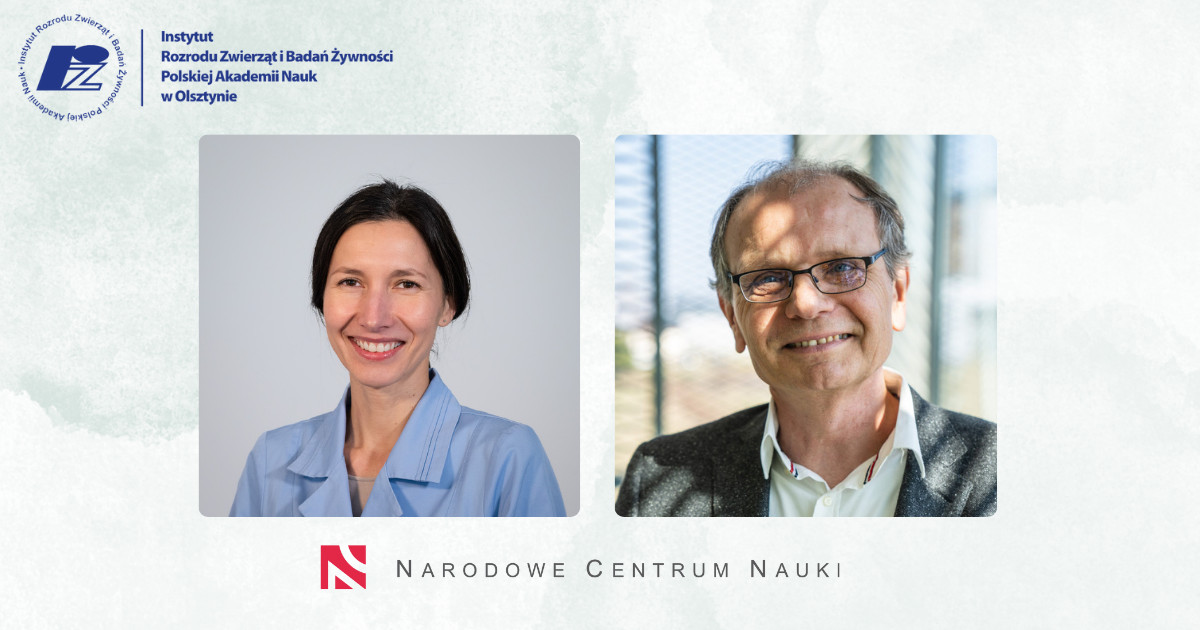
OPUS 25 is a competition of the National Science Centre aimed at financing basic research carried out as part of research projects by scientists at all stages of their scientific career. Among the grantees of the 25th edition of the competition are scientists of the IAR&FR PAS, who, thanks to the grants, will investigate the epigenetic memory of immune cells and the influence of diet on wound healing.
Grant-winning projects:
Poject Leader: dr Joanna Wiśniewska
Grant: PLN 3 495 898
The aim of the project is to show that changing eating habits by partial substitution of dietary animal fat by plant oils improves skin wound healing by reducing pro-inflammatory effect of WD and restoring skin ability to heal wounds via repair (scarring). Additionally, a comparative analysis of the effect on skin between diet rich in rapeseed and palm oil will be performed. To achieve our goal, experimental mice will be fed modified versions of laboratory animal WD in which 50% of the animal fat content will be replaced with rapeseed or palm oil, and standard WD (control). In post-injured skin samples collected from animals at the inflammatory and remodeling phase of wound healing, we will determine: (a) macrophage phenotype and their functional features, (b) inflammatory markers expression, (c) markers of reparative healing. In the in vitro experiments there will be investigated the mechanism underlying the effect of diet on interactions between macrophages and dermal fibroblasts, and the role of the CD36 (FA transporter) and Wnt/β-catenin pathway in establishing these interactions. Single cell RNA-sequencing (scRNA-seq) and chromatin profiling (scATACseq) will provide detailed molecular – level information on the impact of diet on intact and post-injured skin cell populations.
Project leader: prof. Carsten Carlberg
Grant: PLN 3 371 280
The effects of vitamin D on the epigenome of immune cells and their functional response in terms of gene activity (transcriptome) will be measured by a series of so-called next generation sequencing methods. The data will be analyzed by bioinformatic methods and used to build mechanistic in silico models of vitamin D’s function in immune cells. We expect to observe responses of the epigenome and transcriptome of immune cells to vitamin D that are found in all study participants as well as individual-specific responses. This will allow us to understand the molecular basis of individual differences in the response to vitamin D, referred to as the vitamin D response index. As a consequence, we will be able to provide more personalized advices for vitamin D supplementation, in order to obtain optimized health benefits in terms of a well-functioning immune system.
